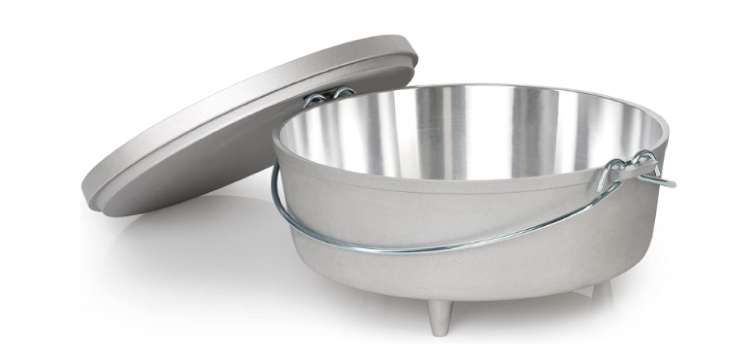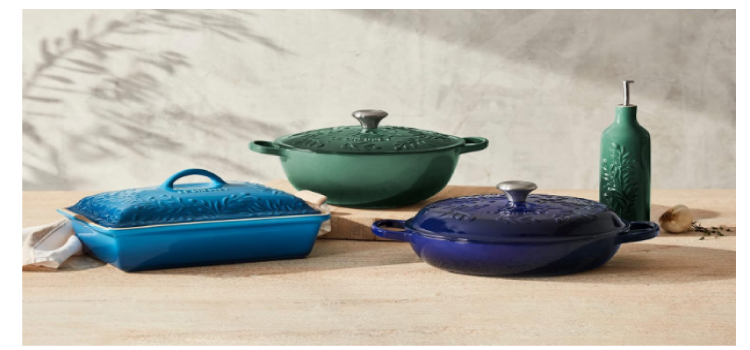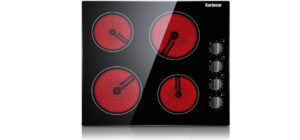As an Amazon Associate I earn from qualifying purchases.
Dutch ovens are a kitchen essential, providing versatility in cooking various dishes. When it comes to choosing between aluminum and cast iron Dutch ovens, there are several factors to consider. Let’s dive into the comparison to help you make an informed decision for your cooking needs.

Introduction
Aluminum and cast iron Dutch ovens are popular choices, each with its unique features and benefits. Understanding the differences will assist you in selecting the right cookware for your kitchen.
Material and Weight
Aluminum Dutch ovens are known for their lightweight nature, making them easy to handle and maneuver in the kitchen. On the other hand, cast iron Dutch ovens are significantly heavier due to the dense and sturdy material.
Heat Conductivity
Aluminum excels in heat conductivity, heating up quickly and distributing heat evenly across the cooking surface. Cast iron, while slower to heat up, retains and distributes heat more evenly over time, making it ideal for slow-cooking and braising.
Heat Retention
Cast iron’s superior heat retention is one of its standout features. Once heated, it stays hot for an extended period, keeping your dishes warm even after removing them from the heat source. Aluminum, while efficient in conductivity, may not retain heat as effectively.

Durability and Longevity
Cast iron Dutch ovens are renowned for their durability and longevity, often passed down through generations. With proper care and seasoning, cast iron cookware can last a lifetime. Aluminum, while durable, may not have the same longevity.
Seasoning and Maintenance
Cast iron Dutch ovens require seasoning to create a natural non-stick surface and prevent rusting. Aluminum, being non-porous, doesn’t require seasoning but may require specific cleaning methods to avoid scratching the surface.
Versatility in Cooking
Both aluminum and cast iron Dutch ovens offer versatility in cooking. Aluminum is excellent for quick, even heating, suitable for a range of dishes. Cast iron excels in slow-cooking, baking, and frying, providing a wide array of cooking options.
Price Consideration
Aluminum Dutch ovens are generally more affordable than their cast iron counterparts. If you’re on a budget, aluminum provides a cost-effective option without compromising on performance.
Design and Aesthetics
Cast iron Dutch ovens often boast classic, timeless designs, contributing to their aesthetic appeal. Aluminum Dutch ovens may come in sleek and modern designs, offering a different aesthetic for your kitchen.
User Experience
User experiences vary based on personal preferences and cooking styles. Some may appreciate the lightweight nature of aluminum, while others enjoy the traditional and sturdy feel of cast iron.
Environmental Impact
Considering the environmental impact is crucial. Both materials can be recycled, but the energy-intensive production process of aluminum may have a larger environmental footprint compared to cast iron.

Brand Reputation
Well-known brands in the cookware industry produce both aluminum and cast iron Dutch ovens. Researching and considering brand reputation can help you make a more informed decision.
Consumer Preferences
Consumer preferences play a significant role in the choice between aluminum and cast iron. Whether it’s the convenience of lightweight aluminum or the timeless appeal of cast iron, understanding your preferences is key.
Tips for Cooking
Conclusion
In conclusion, choosing between aluminum and cast iron Dutch ovens depends on your cooking preferences, budget, and desired features. Both materials have their strengths, so consider what matters most to you in the kitchen.
FAQs (Frequently Asked Questions)
This article provides a detailed comparison between aluminum and cast iron Dutch ovens, helping you make an informed decision based on your cooking preferences and needs.
As an Amazon Associate I earn from qualifying purchases.



